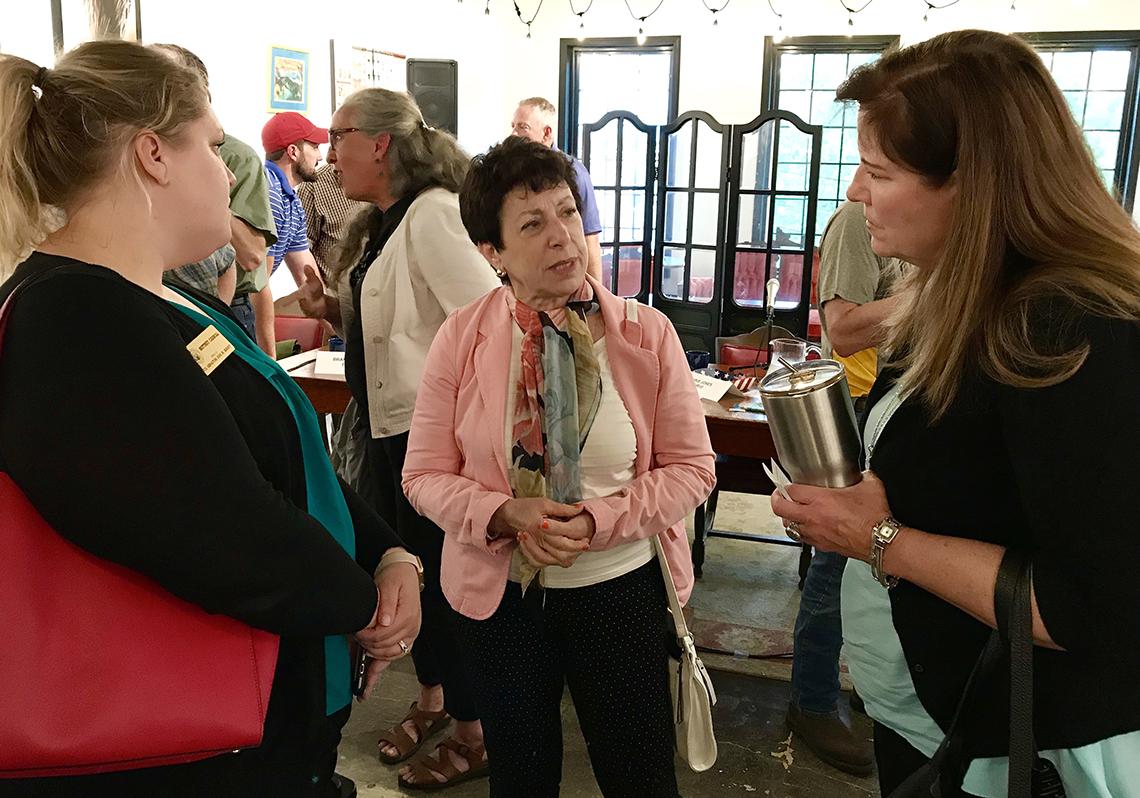Iowa Hosts Birnbaum’s Last Community Forum

Photo: John Schelp
Concerns about water quality took center stage in Mt. Vernon, Iowa, at a recent public meeting held by NIEHS and National Toxicology Program director Dr. Linda Birnbaum. A few weeks later, she announced her upcoming retirement, making the Iowa forum the last of 25 such meetings she has held during her tenure.
The NIEHS-funded University of Iowa Environmental Health Science Research Center sponsored the event. The visit included a tour to three farms with different acreages, products and practices, so the visitors could understand the varieties of local agricultural operations and the challenges faced by farmers in the region.
As at all her community forums, Birnbaum asked local organizers to select a key issue to focus on. By listening to voices in urban and rural settings across the country, she learns about environmental health issues and how they may vary from one area to another.
“Some of our best research is the result of strong community participation in the process,” said Birnbaum. Her passion for community involvement was noted by NIH director Dr. Francis Collins when he announced her retirement, which is effective Oct. 3. “She has been a strong proponent of community-based participatory research and she has actively engaged local residents in identifying, planning and reporting on environmental conditions that require both basic and applied research to understand potential health effects,” he wrote in a statement.
Iowa’s senators, from both sides of the aisle, sent staff members to the meeting.
The water quality research theme of the 25-year-old Iowa center reflects the state’s long-term interest in the issue. “Seventy percent of rural residents get their drinking water from private, unregulated water supplies whereas virtually all urban dwellers drink public water that is regulated and monitored,” according to the center’s water quality research theme web page.
Local residents packed the room to raise questions about pesticide and fertilizer use, scale of operations, runoff, cancer and other topics.
At the end of the evening, Birnbaum was interviewed for a video that the center will produce. According to John Schelp of NIEHS’s Office of Science Education and Diversity, the product will be similar to a video produced by the University of California at Davis after last year’s forum in California’s San Joaquin Valley.
“These community forums are part of Dr. Birnbaum’s legacy,” Schelp said. “She’s visited neighborhoods from Harlem to Marin County, from Seattle to the Gulf of Mexico, and from San Juan [Puerto Rico] to St. Lawrence Island [Alaska].”
